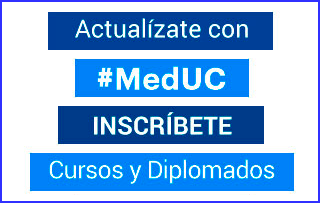La compasión: clave en la renovación de la atención en salud
Compassion: key in the renewal of health care
DOI:
https://doi.org/10.11565/arsmed.v45i1.1581Palabras clave:
compasión, educación médica, práctica clínica, salud públicaResumen
Introducción: durante el último tiempo, las prácticas de atención en salud han experimentado un profundo cambio en la medida que los avances científicos y tecnológicos han alcanzado y modificado la clásica relación médico-paciente. El panorama moderno y las presiones e influencias económicas sobre el ejercicio profesional han conducido, además, a una manifiesta insatisfacción respecto al servicio, tanto de usuarios como de profesionales. Ante esta situación, la compasión podría constituirse en un recurso clave para redirigir nuevamente el foco de la atención hacia la persona. Material y método: se realiza una revisión bibliográfica con el propósito de ilustrar sobre esta capacidad, así como invitar a la reflexión sobre la misma. Resultados: el desarrollo de la compasión permite mejorar el trato con los pacientes al mismo tiempo que contribuye al autocuidado de los profesionales de la salud. La evidencia científica disponible al respecto ha permitido comprender la naturaleza neurobiológica de esta capacidad, así como los múltiples beneficios de su desarrollo e integración a la práctica clínica. Conclusión: existe una necesidad urgente de llevar a cabo una transformación de la atención de salud, la cual no debe plantearse de manera exclusiva a partir de los requerimientos estructurales-materialistas del sistema, sino que también debe reivindicar la importancia de implementar cambios personales y organizacionales que se direccionen hacia una humanización del servicio, para centrarlo efectivamente en la persona.
Descargas
Citas
ASOFAMECH (2016) Competencias comunes para los egresados de las Escuelas de Medicina ASOFAMECH. Accedido en http://www.carlosjorquera.com/CompetenciasPerfilASOFAMECHfinal.pdf el 08 de julio, 2019.
Bedregal P, Passi A& Chang M. (2016). The use of complementary therapies in Chile: Results from the National Health Survey 2010-2011. The Journal of Alternative and Complementary Medicine 22, A1-A142.
Brito-Pons G, Campos D. & Cebolla A. (2018). Implicit or Explicit Compassion? Effects of Compassion Cultivation Training and Comparison with Mindfulness-based Stress Reduction. Mindfulness 9, 1494-1508.
Brito-Pons G. & Librada-Flores S. (2018). Compassion in palliative care: a review. Current Opinion in Supportive and Palliative Care 12, 472-479.
Chierchia G. & Singer T. (2017). The neuroscience of compassion and empathy and their link to prosocial motivation and behavior. In Decision Neuroscience, pp 247-257 eds. Dreher J.C. & Tremblay L. Academic Press
Constand MK, MacDermid JC, Dal Bello-Haas V. & Law M. (2014). Scoping review of patient-centered care approaches in healthcare. BMC health services research 14, 271-279.
Engen HG. & Singer T. (2015). Compassion-based emotion regulation up-regulates experienced positive affect and associated neural networks. Social cognitive and affective neuroscience 10, 1291-1301.
Fernando AT, Skinner K. & Consedine NS. (2017). Increasing compassion in medical decision-making: can a brief mindfulness intervention help? Mindfulness 8, 276-285.
Fredrickson BL, Cohn MA, Coffey KA, Pek J. & Finkel SM. (2008). Open hearts build lives: positive emotions, induced through loving-kindness meditation, build consequential personal resources. Journal of Personality and Social Psychology 95, 1045–62.
Galante J, Galante I, Bekkers MJ & Gallacher J. (2014). Effect of kindness-based meditation on health and well-being: a systematic review and meta-analysis. Journal of consulting and clinical psychology 82, 1101-14.
Gilbert P. (2014). The origins and nature of compassion focused therapy. British Journal of Clinical Psychology 53, 6-41.
Gilbert P. (2015). Mindful compassion: how the science of compassion can help you understand your emotions, live in the present, and connect deeply with others. London: Robinson.
Gilbert P, Catarino F, Duarte C, Matos M, Kolts R, Stubbs, J, Ceresatto L, Duarte J, Pinto-Gouveia J. & Basran J. (2017). The development of compassionate engagement and action scales for self and others. Journal of Compassionate Health Care 4, 4.
Gómez-Batiste X, Mateu S, Serra-Jofre S, Molas M, Mir-Roca S, Amblà s J, Costa X, Lasmarías C, Serrarols M, Solà -Serrabou A, Calle C. & Kellehear A. (2018). Compassionate communities: design and preliminary results of the experience of Vic (Barcelona, Spain) caring city. Annals of palliative medicine 7, S32-S41.
Hangartner D. (2015). Neuroscience of Compassion: Challenges and Opportunities. Dharma Drum Journal of Buddhist Studies 16, 123-140.
Hill TE. (2010). How clinicians make (or avoid) moral judgments of patients: implications of the evidence for relationships and research. Philosophy, Ethics, and Humanities in Medicine 5, 11.
Hoffmann SG, Grossman P & Hinton DE. (2011). Loving-kindness and compassion meditation: Potential for psychological intervention. Clinical Psychology Review 31, 1126-1132.
Institute of Medicine (US) Committee on Quality of Health Care in America. (2001). Crossing the Quality Chasm: A New Health System for the 21st Century. Washington, D.C: National Academy Press.
Jazaieri H, McGonigal K, Jinpa T, Doty JR, Gross JJ. & Goldin PR. (2014). A randomized controlled trial of compassion cultivation training: Effects on mindfulness, affect, and emotion regulation. Motivation and Emotion 38, 23-35.
Jinpa T. (2015). A fearless heart: how the courage to be compassionate can transform our lives. New York: Avery Publishing Group.
Juengst E, McGowan ML, Fishman JR. & Settersten Jr RA. (2016). From “personalized†to “precision†medicine: the ethical and social implications of rhetorical reform in genomic medicine. Hastings Center Report 46, 21-33.
Kahneman D. & Klein G. (2009). Conditions for intuitive expertise: a failure to disagree. American psychologist 64, 515-526.
Kelliher Rabon J, Sirois FM. & Hirsch JK. (2018). Self-compassion and suicidal behavior in college students: Serial indirect effects via depression and wellness behaviors. Journal of American College Health 66, 114-122.
Kemeny ME, Foltz C, Cavanagh JF, Cullen M, Giese-Davis J, Jennings P, Rosenberg E, Gillath O, Shaver P, Wallace BA. & Ekman P. (2012). Contemplative/emotion training reduces negative emotional behavior and promotes prosocial responses. Emotion 12, 338-250.
Kirby JN. (2017). Compassion interventions: The programmes, the evidence, and implications for research and practice. Psychology and Psychotherapy: Theory, Research and Practice 90, 432-455.
Klimecki O. & Singer T. (2012). Empathic distress fatigue rather than compassion fatigue? Integrating findings from empathy research in psychology and social neuroscience. In Pathological altruism, eds. Oakley B, Knafo A, Mahavan G. & Wilson D.S. pp. 368-383. New York, NY, US: Oxford University Press.
Krasner MS, Epstein RM, Beckman H, Suchman AL, Chapman B, Mooney CJ. & Quill TE. (2009). Association of an educational program in mindful communication with burnout, empathy, and attitudes among primary care physicians. Jama 302, 1284-1293.
Krogh E, Medeiros, S, Bitran, M. & Langer ÃI. (2019). Mindfulness y la relación clínica: pasos hacia una resiliencia en medicina. Revista médica de Chile 147, 618-62
Kuhn M, Letunic I, Jensen LJ. & Bork P. (2015). The SIDER database of drugs and side effects. Nucleic acids research 44, D1075-D1079.
Lown BA, Rosen J. & Marttila J. (2011). An agenda for improving compassionate care: a survey shows about half of patients say such care is missing. Health Affairs 30, 1772-1778.
Mladovsky P, Srivastava D, Cylus J, Karanikolos M, Evetovits T, Thomson S. & McKee M. (2012). Health policy responses to the financial crisis in Europe: impact and implications for policy. World Health Organization.
Neff KD. & Germer CK. (2013). A pilot study and randomized controlled trial of the mindful selfâ€compassion program. Journal of clinical psychology 69, 28-44.
Neff K. D. & Germer C. (2017). Self-Compassion and Psychological Wellbeing. In Oxford Handbook of Compassion Science, ed. Doty J. Oxford University Press.
Orellana-Rios C., Radbruch L., Kern M., Regel Y., Anton A., Sinclair S. & Schmidt S. (2018). Mindfulness and compassion-oriented practices at work reduce distress and enhance self-care of palliative care teams: a mixed-method evaluation of an “on the job “program. BMC palliative care 17, 3.
Pace TW, Negi LT, Dodson-Lavelle B, Ozawa-de Silva B, Reddy SD, Cole SP, Danase A, Craighead L. & Raison C. L. (2013). Engagement with cognitively-based compassion training is associated with reduced salivary C-reactive protein from before to after training in foster care program adolescents. Psychoneuroendocrinology 38, 294-299.
Ricard M. (2016). Altruism: the power of compassion to change yourself and the world. Main: Atlantic Books.
Saarinen A, Keltikangas-Järvinen L, Cloninger CR, Veijola J, Elovainio M, Lehtimäki T, Raitakari O. & Hintsanen M. (2019). The relationship of dispositional compassion for others with depressive symptoms over a 15-year prospective follow-up. Journal of affective disorders 250, 354-362.
Sinclair S, Norris JM, McConnell SJ, Chochinov HM, Hack T F, Hagen N A, McClement S. & Bouchal SR. (2016). Compassion: a scoping review of the healthcare literature. BMC palliative care 15, 6.
Thompson I, Amatea E & Thompson E. (2014). Personal and contextual predictors of mental health counselors' compassion fatigue and burnout. Journal of Mental Health Counseling 36, 58-77.
Weng HY, Fox AS., Shackman AJ, Stodola DE, Caldwell JZ, Olson MC, Rogers GM. & Davidson RJ. (2013). Compassion training alters altruism and neural responses to suffering. Psychological science 24, 1171-1180.

Descargas
Publicado
Cómo citar
Licencia
Los autores/as conservan sus derechos de autor y garantizan a la revista el derecho de primera publicación de su obra, la que estará simultáneamente sujeta a la Licencia CC BY-SA 4.0 (Ver declaración de Acceso Abierto).








